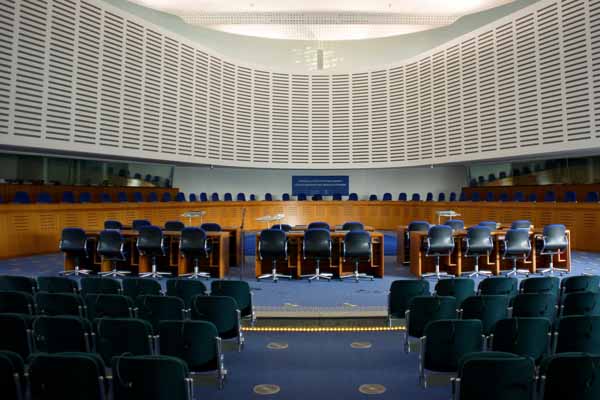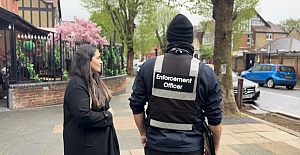The court declared Tuesday that Britain was in violation of Article 3 of Protocol No. 1 of the convention on Human Rights, by not letting the ten internees vote in June 2009 European parliament elections. Protocol 1 states, "The High Contracting Parties undertake to hold free elections at reasonable intervals by secret ballot, under conditions which will ensure the free expression of the opinion of the people in the choice of the legislature." Five judges voted in favour and two against. However, the court dismissed claims for compensation and legal costs saying that the judgement itself was “sufficient just satisfaction.” In its ruling, the court said “some legislative amendment would be required [to British law] to make the electoral law compatible with the Convention,” but it recognised recent steps taken in the United Kingdom, with the publication of a draft bill related to the ruling and a Parliamentary report to examine it. "Given, however, that the legislation remained unamended, the Court concluded that there had been a violation.”
Isabella Sankey of civil rights organisation Liberty said, “While some Conservatives play cheap politics with Churchill’s human rights legacy, the Court urges the Government to listen to its own cross-party parliamentary committee and remove the blanket ban on prisoner voting."
She added that despite a violation of almost ten years, the Court had shown patience and respect for parliamentary sovereignty – "even now declining to award damages or costs”
The government is currently in the process of considering a recommendation put forward by a cross-party select committee that prisoners serving a jail term of one-year or less should be allowed to vote.


 Prime Minister Keir Starmer's 2025 Easter message
Prime Minister Keir Starmer's 2025 Easter message After Nesil Caliskan a by-election will be held in Jubilee ward in Enfield
After Nesil Caliskan a by-election will be held in Jubilee ward in Enfield Publishing the analysis, Labour’s Cllr Ergin Erbil said Everybody in Enfield deserves basic rights
Publishing the analysis, Labour’s Cllr Ergin Erbil said Everybody in Enfield deserves basic rights Gaza-Israel conflict Statement from Cllr Ergin Erbil, Leader of Enfield Council
Gaza-Israel conflict Statement from Cllr Ergin Erbil, Leader of Enfield Council UK AMBASSADOR TO TURKEY VISITS FETHIYE
UK AMBASSADOR TO TURKEY VISITS FETHIYE Journalists from Europe held the Turkish Media Workshop in Skopje
Journalists from Europe held the Turkish Media Workshop in Skopje The European Union called on Turkey to uphold democratic values
The European Union called on Turkey to uphold democratic values Turkish citizens in London said Rights, Law, Justice
Turkish citizens in London said Rights, Law, Justice The 'Prince of Paris' has impressed in his first EuroLeague season
The 'Prince of Paris' has impressed in his first EuroLeague season Saran Media And Euroleague Basketball Extend Media Rights Partnership for Four More Years
Saran Media And Euroleague Basketball Extend Media Rights Partnership for Four More Years Will Rangers be Jose Mourinho’s next victim?
Will Rangers be Jose Mourinho’s next victim? Jose Mourinho's Fenerbahce face Rangers on Thursday
Jose Mourinho's Fenerbahce face Rangers on Thursday Residents welcomed back to Edmonton Leisure Centre
Residents welcomed back to Edmonton Leisure Centre Barclays has become the biggest UK lender so far to cut mortgage rates
Barclays has become the biggest UK lender so far to cut mortgage rates THE SPRING STATEMENT EXPLAINED, UK ECONOMIC OUTLOOK AND GROWTH FORECASTS
THE SPRING STATEMENT EXPLAINED, UK ECONOMIC OUTLOOK AND GROWTH FORECASTS Launch of Made in Enfield gift shop to celebrate local artists and designers
Launch of Made in Enfield gift shop to celebrate local artists and designers
















